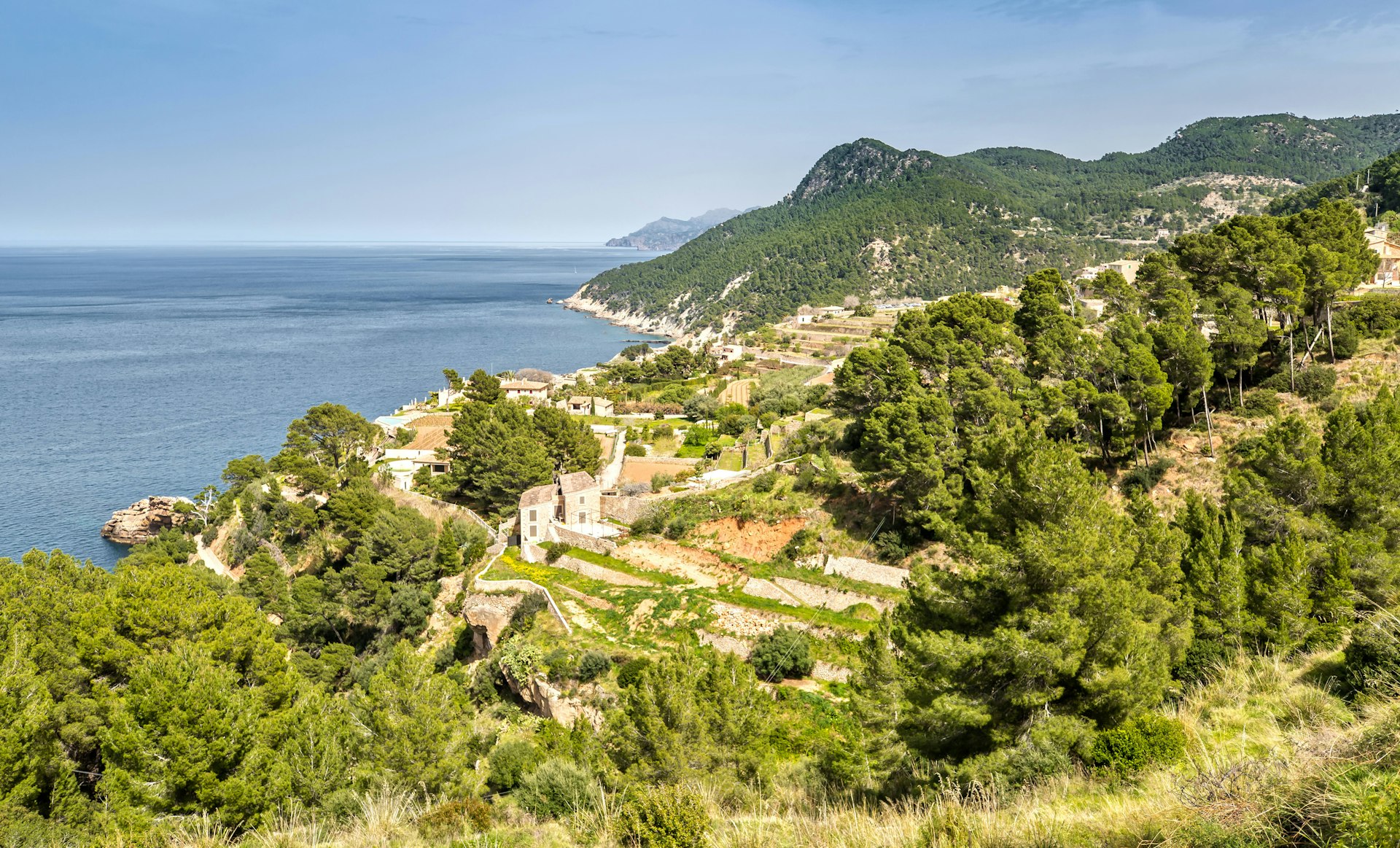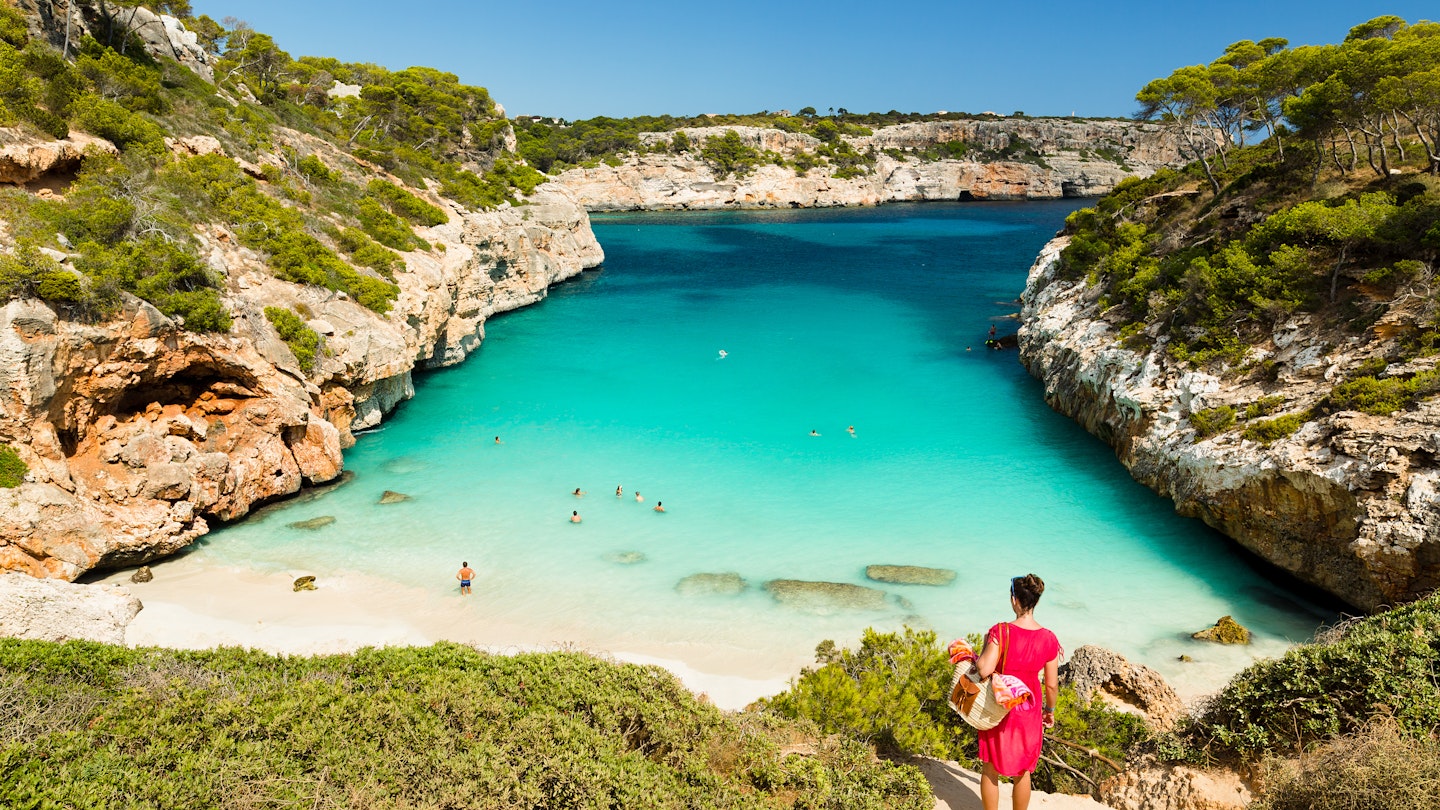Popping out for after-work tapas on any old Tuesday. Joining video calls from a sun-drenched terrace. Spending weekends kicking back by the Mediterranean or hiking through rugged hills. Sound tempting yet? Spain’s much-anticipated new digital-nomad visa could be just the ticket.
Capitalizing on the enormous rise in remote work in the wake of the pandemic, Spain has announced a new visa program that will allow non–European Economic Area residents (including British and US citizens) working for foreign companies to live in the country without having to obtain a full work visa. While details are still being finalized, the initiative is part of the Ley de Startups (Startups Law), which aims to attract tech companies, remote workers and digital nomads to Spain, and is expected to come into force in January 2023.
The visa will initially be valid for one year, with the possibility of extending it afterward for up to five years. To be eligible, you must be employed by a non-Spanish company operating outside Spain, or, if self-employed, earn no more than 20% of your income from Spanish clients. There will be a minimum monthly income requirement (rumored to be around €2100 to €3000), and applicants will need to show some kind of proof of accommodation. Additionally, private health insurance and a higher-education qualification or three years’ worth of work experience are likely to be other prerequisites. Visa holders will benefit from substantial non-resident tax breaks (exact figures are still to come), and have the option to bring along close family members such as partners and children, too.
Does a life in Spain sound enticing? As you wait the release of all the program’s details, start dreaming in the meantime of the perfect place to live.
Where should digital nomads in Spain live?

1. Tarifa
Best for beach lovers
One of Spain’s most bewitching beach destinations is also an increasingly popular digital-nomad hub. On the southernmost tip of mainland Spain, overlooking Cádiz’s Costa de la Luz, soulful Tarifa is an ancient town with a creative international energy, thanks to its unrivaled kitesurfing and windsurfing scene. The maze-like old town buzzes with globally inspired restaurants, lively surf bars, independent boutiques and boho-chic cafes, while white-gold beaches with views across to Morocco beckon in the distance. With low-key coworking spaces, stylish nomad-friendly accommodation, a lively yoga community and easy access from Málaga or Seville airports, Tarifa is a salt-in-your-hair dream for beach-loving remote workers. The dazzling white town of Vejer, the sherry-making city of Jerez, the Andalucian capital of Seville and the wild Sierra de Grazalema mountains are just a taste of what’s on the doorstep.

2. Valencia
Best for urban living
Aiming to become carbon-neutral by 2030, Spain’s third-largest city serves as a pioneering, welcoming home base, one with a breezy, beachy attitude. Its creative energy, warm year-round climate, busy festival calendar, unmatched gastronomy and laid-back pace make a tempting package for digital nomads and remote workers, with coworking spaces and laptop-friendly cafes widespread. Spend your free time cycling or running along the ingeniously repurposed Turia riverbed, admiring the work of celebrated local architect Santiago Calatrava, popping into fresh-produce markets, swimming in the Mediterranean, hunting down local street art or hanging out in arty Russafa, home to Valencia’s liveliest dining-and-drinking scene.

3. Gran Canaria
Best for sunseekers
If there’s one Spanish region that feels tailor-made for digital nomads, it’s the sun-washed Canary Islands, off Morocco’s southern coast. So it’s no surprise that in recent years Gran Canaria has established itself as a leading remote-work center, pulling in nomads from all over the world. Dynamic island capital Las Palmas (one of Spain’s biggest cities) has a fun, cosmopolitan atmosphere, a sweeping city beach and the historical Vegueta district, along with plenty of coworking and co-living projects that go well beyond desks and wi-fi to offer meetups, networking events and more. You can also go (almost) off-grid in one of the delightful villages of Gran Canaria’s mountainous interior. Quick local flights and ferries make it a breeze to explore neighboring islands from here, too.

4. Granada
Best for culture aficionados
Catching a glimpse of the magical Alhambra (one of Spain’s greatest monuments) over a morning café con leche is reason enough to choose the history-rich Andalucian city of Granada as your temporary home. You can also throw in third-wave coffee spots, a clutch of welcoming coworking spaces, a famously lively tapas scene, a growing line-up of plant-based restaurants, a wonderfully walkable center and the sunny southern climate. Within an hour’s drive of Granada you can be hitting the ski slopes in the Sierra Nevada, hiking up some of Spain’s tallest peaks (including spectacular Mulhacén), lazing on the beautiful pebble beaches of the Costa Tropical and exploring little-touristed inland Andalucian, with its timeworn villages and endless olive groves.

5. Bilbao
Best for foodies
If fabulous regional gastronomy is top of your perfect-base list (and it should be), this revitalized northern powerhouse ticks plenty of boxes. Riverside Bilbao has an entrancing cobbled old town, some of the world’s finest pintxo bars and a raft of Michelin-star kitchens, along with switched-on city-center coworking hubs and organized social events for remote workers. (Just don’t expect a Mediterranean climate.) Elsewhere, you can learn how to pour local cider, take a Basque-language course, escape to beachside San Sebastián, dive into the dynamic creative scene (which goes way beyond Frank Gehry’s iconic Guggenheim Bilbao) or head out into the Basque Country’s lush green countryside for hiking, cycling, surfing, rock climbing and more.

6. Mallorca
Best for island living
Wrapping up the working day by plunging into the Mediterranean from a secluded pebbly cove is the stuff of digital-nomad dreams. It’s all perfectly possible in lovely Mallorca, with its pine-fringed turquoise bays, remote olive-covered hills, sizzling culinary scene and peaceful honey-stone villages that spring to life with weekend farmers markets. The largest of Spain’s Balearic Islands combines the urban buzz of Palma de Mallorca (a seductive, art-loving city with real design flair) with easily accessible natural thrills, including the Serra de Tramuntana’s wonderful hiking and biking trails. An ever-growing number of coworking spots, workshops and creative events cater to laptop workers across the island.












